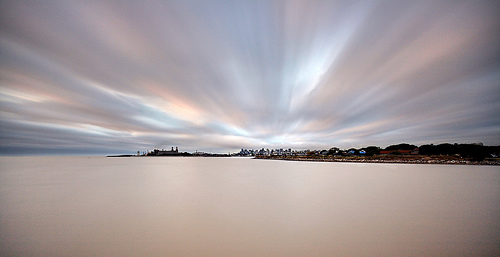So for this post, I borrowed the base from my Cronkite Conversation, expanded, and still feel like I only scratched the surface of all the ideas that came up. Anyway, journalist and author Mei-Ling Hopgood was on campus early this week. She currently lives and works in Argentina’s capital, Buenos Aires, and talked about living between the challenges of changing journalism as well as the challenges of living abroad.
Hopgood spoke several times over the last few days, including a Monday lunch, an evening discussion and in at least one class. I really appreciated her stories, thoughts, and insights on journalism, working from abroad, and on transitioning to writing books. For freelance journalists (whether by choice or circumstance), Hopgood advised keeping busy with projects and ideas so that you “always have something and something coming.”
For those who want to go abroad, she recommended going less comfortable, where you can find under-covered stories and stand out from the crowd. Technology has made it possible to write and keep up with media almost anywhere, and really opened up new places (and therefore new stories, to go along with the new platforms and traditional reporting skills taught at places like the Walter Cronkite School). In Hopgood’s case, location is Buenos Aires. When pitching stories from abroad, look for local connections so that your story becomes “local news abroad.” Those who work and report from other countries get a different experience than a tourist gets, Hopgood said, emphasizing that it’s important to learn as much as possible before going. The reward is that reporters are “licensed” (whether officially or by curiosity) to go ask questions and may end up in places they wouldn’t see if they were just visiting. She also emphasized how much learning the language of the area you want to cover will make an impact – without it, the language barrier will make finding some things out tricky.

Hearing how the transition into books began, with Hopgood applying her journalism background to her own personal story, really painted a picture of how to approach a very personal story and a very different project than newspaper or magazine articles. Hopgood said she knew the basic facts of her adoption from Thailand all her life, and wrote about it for the first time in an article around the time she began to learn more about her birth family. For the book, there were longer outlines and a lot more writing, but also the usual fact checking. There were extra ethical dilemmas when working with sensitive material and her own personal stories, but Hopgood said her experience kicked in again to help her navigate challenges and get the story. Her portfolio of writing didn’t hurt when it came to getting her book picked up, either, by showing her award winning skills to a new audience. Now part of the publicity tour includes – writing articles that cover new angles of her book material (as well as planning much of her own publicity and logistics – probably familiar ground for most freelancers!).
Perhaps most importantly from Hopgood’s advice – write regularly!
All in all, I’m really looking forward to reading “Lucky Girl” and the next book Hopgood is working on, about parenting around the world. Luckily while I wait for one to arrive in the mail and the other to be released, I don’t have to wait to get started: check out this in-depth piece for Dayton Daily News, Casualties of Peace.
For more on Hopgood’s thoughts on Argentine media, check out Alyssa at The World Beat.
And here’s Hopgood’s home page.
For more amazing photos including Buenos Aires, check out lrargerich on flickr.

Tags: adoption, Argentina, Buenos Aires, Cronkite conversations, Dayton Daily News, Lucky Girl, Mei-Ling Hopgood, memoirs, nonfiction, Peace Corp, Thailand, World Beat, writing





No comments
Comments feed for this article
Trackback link: http://airisfullofspices.com/2009/11/04/nice-work-and-advice/trackback/